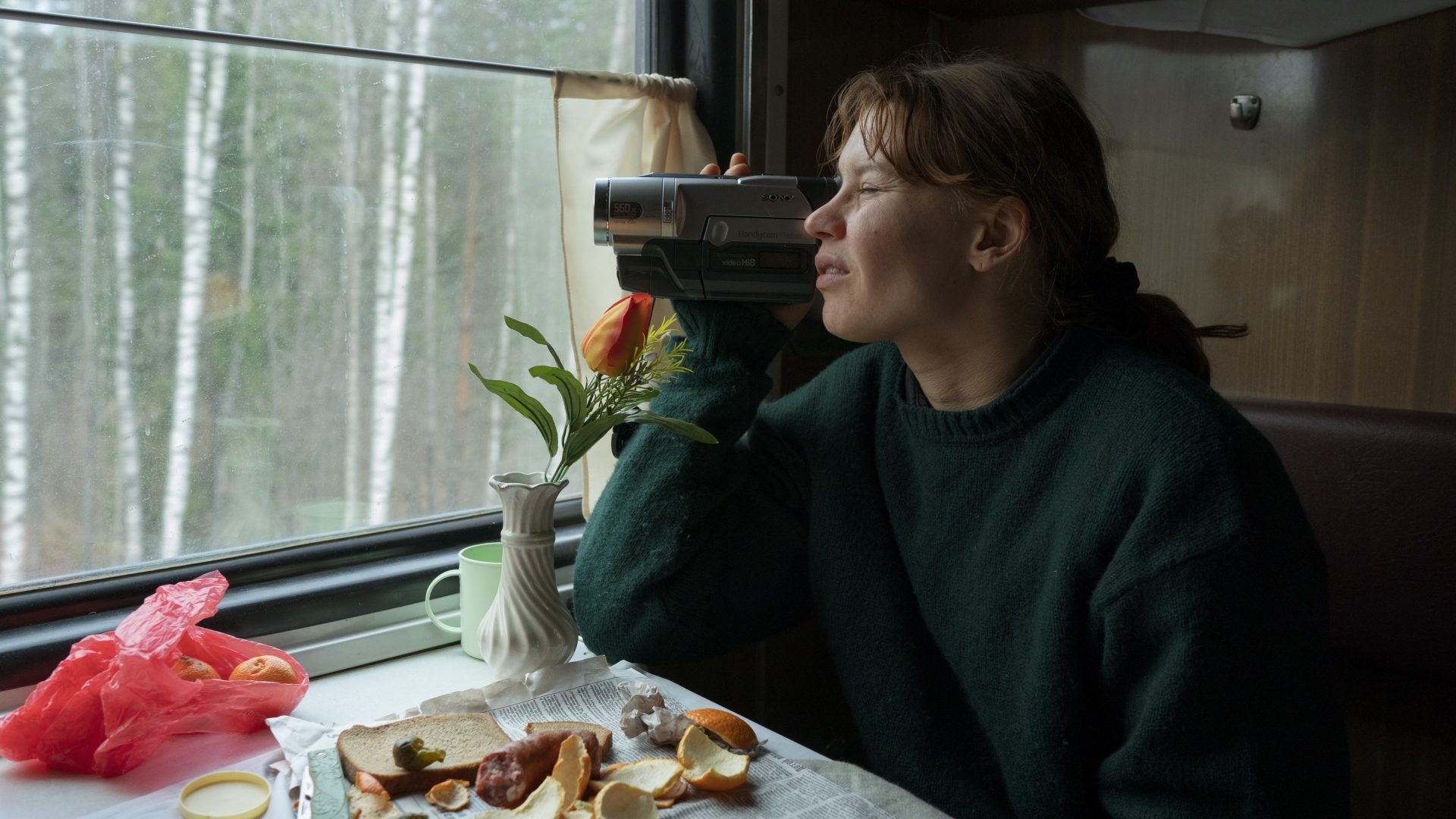The opening scenes of Autumn Girl – a gentle, genre-confused biopic of Kalina Jędrusik, who was considered Poland’s equivalent to Marilyn Monroe
– show a woman with big shameless appetites.
Kalina is drunk and joyous after a night on the town with her husband, tramping through her apartment complex courtyard getting yelled at by a neighbour who resents her brassy enjoyment of life. She is at lunch leaning over to finish a second cream cake with brisk greedy pleasure as her friend complains about her weight. And, most strikingly, she is seen luxuriating in the sexual adoration of a live-in lover – in the same apartment she shares with her husband.
Her outsized appetites are shown as natural and enviable, sensuous and alluring, but before long we will see how the contradictory demands on women come to paralyse Kalina. The balance between being an attractive woman and a modest one has always been and remains an impossible one,
but this is especially true in the context of Kalina’s heyday, 1960s Poland, when a brief liberalisation fed into a new wave of cultural freedom that quickly proved elusive.
Kalina, played by Maria Dębska, is pure star power, not only impossibly
sexy and funny but with a beautiful voice and that propulsive sort of charisma that can’t be cultivated or faked. Her husband, Stanisław Dygat,
(Leszek Lichota) is a respected novelist who sits around drinking vodka with
his intellectual compatriots discussing philosophy and literature; at times
he appears condescending towards Kalina, recommending she choose
demureness over defiance when faced with criticism.
And yet Stanisław is perhaps the most essential of her support systems. He is not possessive or precious about who gets to enjoy his wife’s company. Why would he be, when the reason he loves her is her insatiable appetite for new encounters and new audiences? He is not threatened by the presence of a secondary lover (this aspect of the biopic is based in reality).
The crux of Autumn Girl’s story is a conflict between Kalina and the new
boss of the television station, Ryszard Molski (Bartłomiej Kotschedoff). Molski was long ago a failed actor who performed briefly with Kalina and has fostered a crush on her ever since. With his new-found powerful position, he assumes he will easily be able to seduce her.
When he is again rejected, he summarily fires Kalina and bans all directors from hiring her again, citing a spurious audience survey that found her dislikeable because of her low necklines and risque material. The rest of the film depicts the maddening effects of male authority over women they are awed by yet despise.
The Molski storyline is, as far as I can tell, not a direct telling of a specific incident but rather an assembled story to reflect the general atmosphere of confused shame and worship Kalina lived within. Bo we mnie jest seks, the Polish title of this film rather than the banal Autumn Girl, translates to Because There Is Sex In Me, lyrics to a song Kalina sings at the film’s close. The song implores the audience to appreciate not only the sex that is apparent with every roll of the hip and wink of the eye, but also the soul inside the body. The two do not cancel each other out, she is insisting. Kalina, like so many women, is prized for the very thing for which she is then condemned and destroyed.
It’s hot to see a woman with an unashamed appetite, but for the Molskis of this world, the fact that the woman may choose what to lend her great appetite to is not acceptable. It is too grave an insult that Kalina sleeps around and yet does not want to sleep with him.
These dynamics are especially interesting in the context of the film’s setting, 1960s Poland. In the years following the Polish Thaw of 1956, there was not unjustified expectation that a true lasting liberalisation had arrived. Life under the reformist leader Władysław Gomułka would not bear this out for very long, but the interim period of hope is, regardless, a fascinating one of transformation, and it seems not coincidental that muddled sexual mores would become a part of that process.
Sadly, Autumn Girl fails to delve in any satisfying way into the interesting story it has to tell, contenting itself with a strange magical realist mishmash of registers. It dabbles with being a musical, and the general air of unseriousness means that the moments of true feeling fall awkwardly.
The final few minutes show Kalina’s problem with authoritarian Molski being solved by a sudden intervention that may as well have been “And then
she woke up and it was all a dream”, so divorced was it from the reality of intractable government oversight the film had thus far depicted. After Dębska’s luscious performance, it’s unforgiveable.
Autumn Girl is streaming now on Netflix




